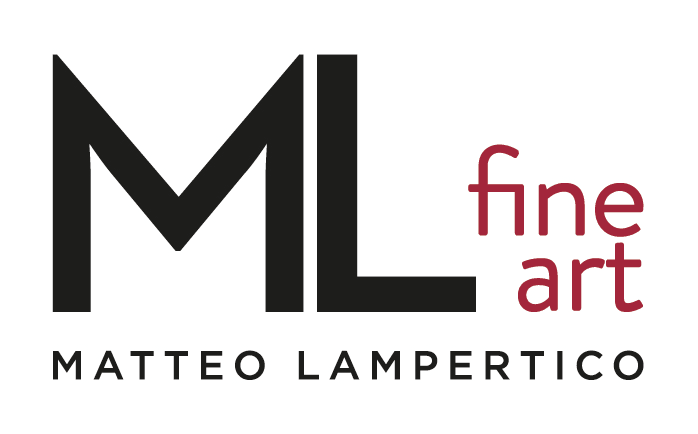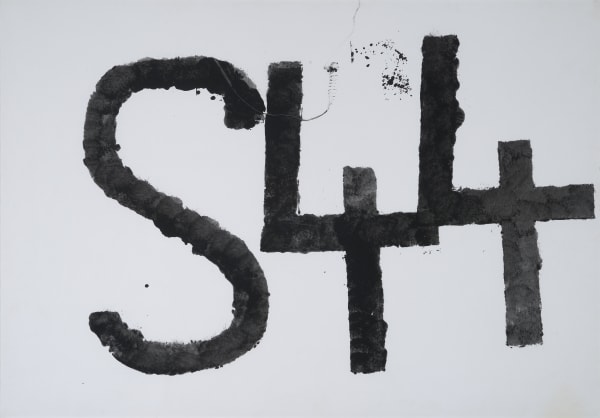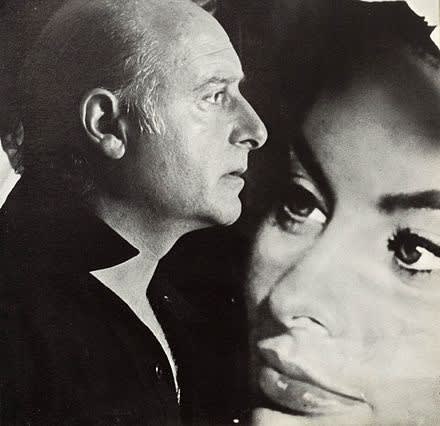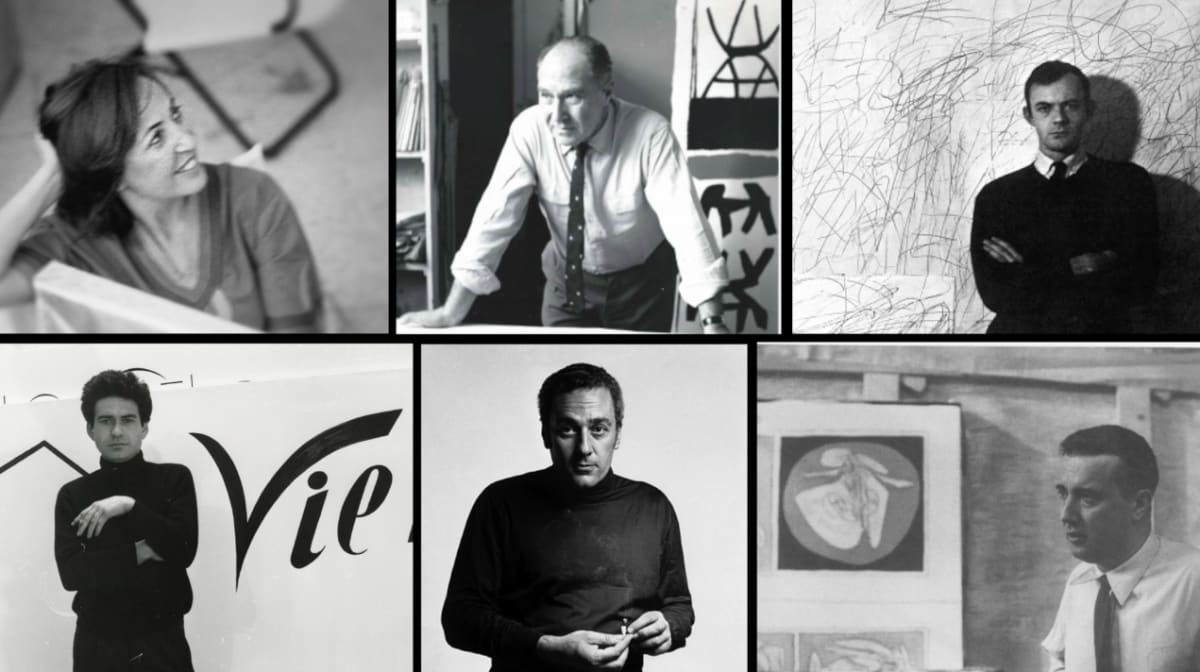Mimmo Rotella Italian, 1918-2006
-

From Word to Sign: Accardi Basquiat Boetti Capogrossi Kounellis Novelli Perilli Twombly
curated by Maria Albani 16 Jul - 30 Oct 2020MILAN - ML Fine Art - Matteo Lampertico invites you to discover our online exhibition focused on the relationship between painting and writing, showcasing selected works by Carla Accardi, Jean-Michel...Read more -

Close Quarters
19 Jun - 25 Sep 2020LONDON - ML Fine Art presents a group exhibition of Italian and international twentieth-century art. Complemented by a selection of modern design from Madrid, London and New York based gallery Portuondo, Close Quarters alludes to the household of an imagined collector.Read more
The sensual encounter with this eclectic collection delineates an imperfect portrait, which the viewer is invited to complete. Simultaneously intimate and startingly impersonal, the objects on view invite speculative incursions on the life of our unnamed protagonist: what did he buy, and what did he inherit? What has he already sold?
Domenico Rotella, nicknamed: Mimmo, was born in Catanzaro (Italy) 7 October 1918. He was an important protagonist of the ‘New Realism’ movement. He was sensitive to the plastic lyricism of the posters plastered on the walls of cities, subject to weather conditions and anonymous lacerations. He studied at the ‘Academia di Belli Arti’ in Naples. He was interested in photography and photomontage, the technique of collage and assemblage, the phonetic poetry and the music of primitive societies. The art of Mimmo Rotella at the time was abstract, he made large graphic signs on neatly cut canvases. His first solo exhibition was organized in 1951 in Rome.
After a stay at the University of Kansas City in 1951/1952 (USA), he returned to Rome and decides not to paint because he believed that “everything was done in painting.” It is from 1953 that the artist began to take off torn posters from the walls, almost like monochromes. Rotella highlights a street language, abstract and poetic. He produced numerous photographs, focusing on identifying the deep plastic aspect of urban wastes. In 1961, invited by Pierre Restany, he joined the ‘New Realists’ in Paris, where he would reside permanently: and where his artistic statement would become social and political. Rotella takes up movie posters that he transforms symbolically. He then participated in many international group exhibitions. From 1963 he experimented the process of photographic transfer on emulsified canvas with repetitive images from magazines or of his own “take-offs” (‘Artypos’ series on canvas or plastic substrate). He then became, in 1964, one of the initiators of ‘Mec Art’. He subsequently undertook a set of neo-expressionist paintings of cinema images.
From the 1960s, the artist also proposed “various objects rotellisations” ready-mades where he diverts the objects from their habitual use (Rotella Metrica, 1966). This process culminates in the 1990s with the Replicants, porcelain replicas of the heads of ‘De Chirico’ blind models who, with goggles or masks, definitely brings us back to the strange familiarity of the objects.
Mimmo Rotella was invited to the New York Guggenheim Museum in 1994 for the exhibition Italian Metamorphosis, then again at the Centre Pompidou in 1996 in Face à l'Histoire, and in 1996 the Museum of Contemporary Art in Los Angeles in Halls of Mirrors exhibition subsequently exported all over the world.
Mimmo Rotella died 8 January 2006
-
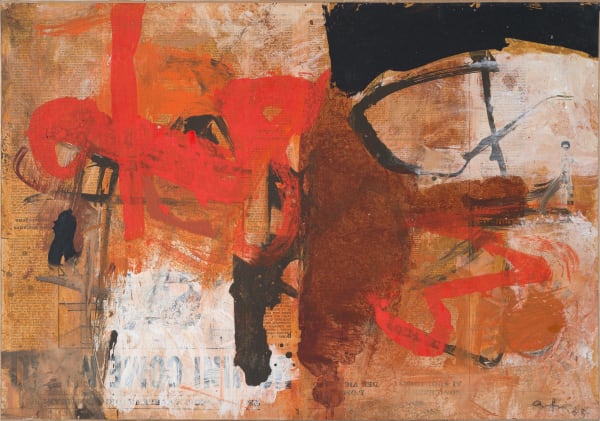
Arte in Nuvola 2024
BOOTH B30 - C29 21 - 24 Nov 2024ML Fine Art is pleased to announce its participation to Arte in Nuvola 2024, that will take place in Rome from 21 to 24 November....Read more -
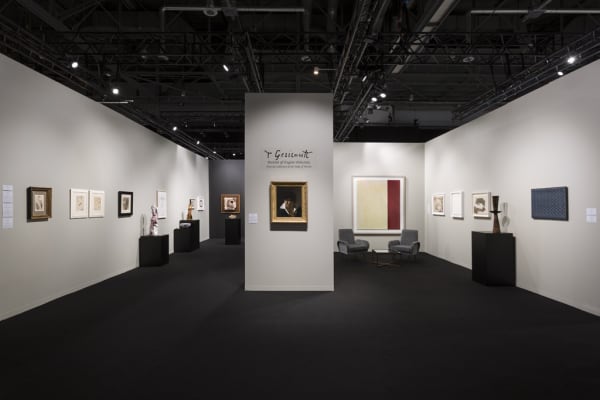
Artgenève 2019
31 Jan - 3 Feb 2019Led by important and historic works by Théodore Géricault, Paul Gauguin, Lucian Freud and Piero Manzoni, M&L Fine Art's booth presented a tightly curated booth...Read more -
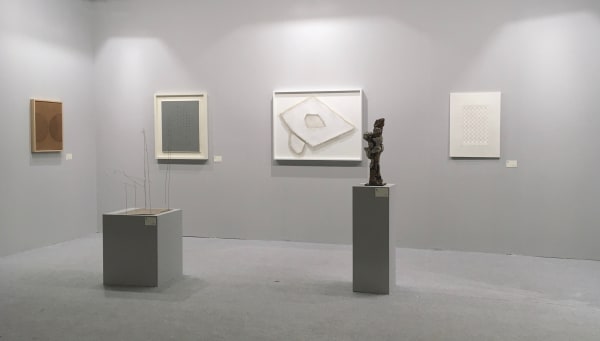
Artefiera 2017
27 - 30 Jan 2017Read more
